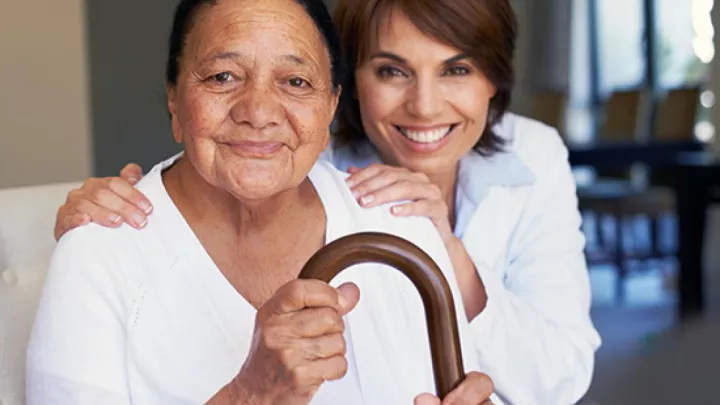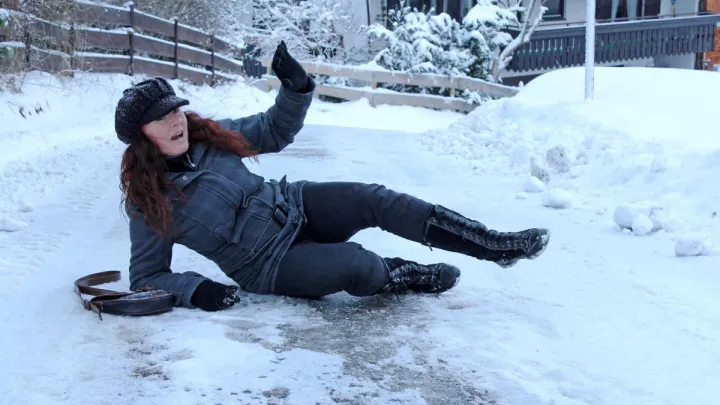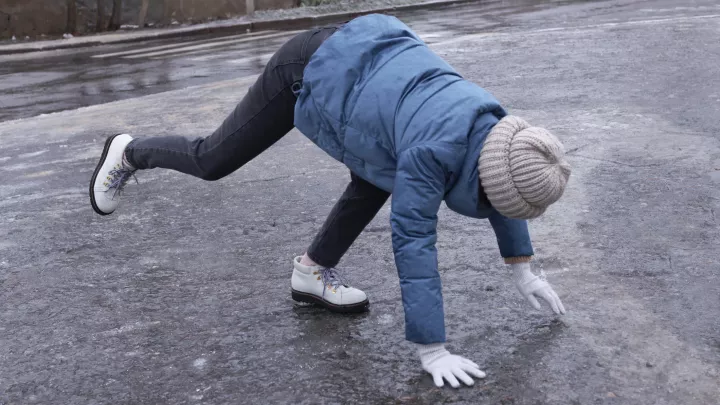9 ways to improve balance and prevent falls

Anyone can trip and fall regardless of age, but the risk increases with age. Losing one's sense of balance and diminished strength and flexibility is a leading cause of injury among older adults. The good news is that there are strategies to improve balance and prevent falls from happening.
Three body systems work together to help us stay balanced: the visual system (seeing), the vestibular system (balance), and the proprioceptive (sensation) system. “All three of these systems work in tandem to make up our balance,” says certified family nurse practitioner Nancy Childe, APRN-NP. “If one of these is off for some reason, you're probably going to feel off balance in some way.”
9 ways to prevent falls and improve balance
If you’re struggling with balance, Childe suggests trying the following fall-prevention strategies:
- Talk to your doctor to rule out medical causes and evaluate muscle strength and balance. Your doctor will want to review your medications for side effects or interactions, discuss any previous falls or near-misses, and ensure there aren’t any underlying medical causes.
- Wear supportive shoes. Avoid flip-flops and other footwear that lack firm support. Get your feet checked.
- Get regular eye, ear and foot exams. Impaired or skewed vision, glaucoma or cataracts can cause the feeling of being off balance, increasing your risk. Hearing or inner ear difficulties and foot problems can also affect your balance.
- Remove trip or slip hazards. Loose floor items like rugs and mats can pose a fall risk. Tuck away cords, repair uneven surfaces and use nonslip mats in your bathtub or shower.
- Exercise extra caution on uneven and slippery surfaces. Slow down, look ahead to see where you are walking, and wear proper footwear, especially outdoors.
- Ensure proper lighting. Turn on the lights inside or outside the house to see better, especially around stairs or uneven surfaces. Use nightlights, clear paths to light switches and stash flashlights in apparent places in case of power outages.
- Keep moving. A sedentary lifestyle can contribute to balance issues. Even low-impact exercises can help you improve your balance and coordination, increase flexibility and gain muscle strength.
- Stay hydrated and eat enough healthy meals. Drink plenty of water and eat nutritional foods regularly to prevent a drop in blood pressure and provide your body with what it needs to maintain muscle mass and balance.
- Use assistive devices, especially if recommended by your doctor. For your safety, resist the urge to leave behind the cane, crutches or other helpful assistive device. Install handrails, grab bars and nonslip treads to help you stay steady.
What medical conditions can impact balance?
Dizziness or a feeling of being off balance can be caused by a variety of medical conditions and medications, including:
- Peripheral neuropathy, inner ear problems, stroke, neurological disorders and vision problems like cataracts or macular degeneration.
- Certain medications, such as diuretics, blood pressure drugs and anxiety medications, can cause dizziness and impact electrolyte levels and blood pressure.
- Benign paroxysmal positional vertigo, or BPPV, is a common balance disorder caused by inner ear crystal misalignment. Mal de débarquement syndrome, or MdDS, is similar to vertigo but is a vestibular disorder that makes you feel like you’re moving even when you’re not.
- Orthostatic hypotension, or postural hypotension, causes a blood pressure drop when standing or sitting up. Gravity pulls blood from the upper body to the lower limbs, temporarily reducing the amount of blood in the upper body.
What to do if you struggle with balance and nothing seems to help
“Seek medical attention if home remedies do not provide relief, as there may be more serious underlying causes,” says Childe. “Your primary care doctor can help you narrow down what may be causing your balance issues and offer additional strategies to identify risks, prevent falls and improve balance.”
Physical therapy is an excellent resource for balance and fall prevention and management. Vestibular therapy can be highly effective in treating conditions like BPPV or vertigo.
UNMC Engage Wellness offers group movement classes such as tai chi, strength, yoga and step. Each participant receives a fitness and balance assessment and an individualized fitness plan. Engage Wellness is Omaha’s only medical fitness and whole-person wellness program for adults affiliated with a leading academic health sciences center.
Schedule an appointment online or call 800.922.0000.







